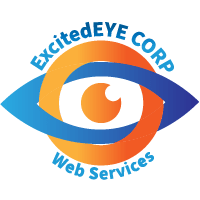What is SEO?
Search engine optimization (SEO) is the process of improving the visibility and ranking of a website. This happens when a website gains a higher ranking on the search engine results pages (SERPs). When someone searches for a particular term or phrase, search engines use algorithms to analyze the content and possibly a million other variables on websites to determine which pages are most relevant and should rank higher in the search results.
 There are a variety of techniques that can be used to improve a website’s ranking in search engines. Including on-page optimization (making changes to the content and structure of a website). Off-page optimization (building backlinks from other websites). Then technical SEO (optimizing the technical aspects of a website, such as its speed and mobile-friendliness).
There are a variety of techniques that can be used to improve a website’s ranking in search engines. Including on-page optimization (making changes to the content and structure of a website). Off-page optimization (building backlinks from other websites). Then technical SEO (optimizing the technical aspects of a website, such as its speed and mobile-friendliness).
The goal of SEO is to improve the visibility and ranking of a website in search engines. These improvements if completed correctly will lead to more traffic and potentially higher conversion rates. By organically optimizing a website for relevant keywords and phrases, businesses can attract more qualified traffic to their website and improve their chances of generating leads, sales and success.
Utilizing the 3 pillars of SEO (Search Engine Optimization)
By focusing on these three pillars, you can improve the visibility and authority of your website in search engines. This will lead to more traffic and higher conversion rates. Not to mention utilizing organic traffic for an efficient optimized readvertising campaign through Google Ads.
-
-
Quality Website Content:
The content on your website should be high quality, relevant, and informative. It should also be well-written and easy to read. Search engines use algorithms. Each unique algorithm will analyze the content on your website and determine how relevant it is to a particular search query. The website content that appears at the top of search queries can vary widely depending on the specific query being made. In general, search engines try to present the most relevant and useful content to users in response to their queries. To determine what content is most relevant and useful, search engines use algorithms to analyze and rank websites based on various factors such as the quality and relevance of the content, the user’s location and search history, and the credibility and authority of the website.
There are a few factors that can influence the ranking of a website in search results. Some of these factors include the quality and relevance of the content on the website, the use of keywords and phrases that match the user’s query, the structure, and organization of the website, the presence of high-quality links from other websites, and the user experience of the website, including factors such as loading speed and mobile-friendliness.
In general, the content that appears at the top of search results is likely to be relevant and useful to the user and to have been well-researched and well-written. It may also come from a reputable and authoritative source.
-
Infrastructure or On-Site Optimization:
Refers to the technical and non-technical techniques used to optimize the entire site’s construction. These technical audits can even delve into individual web pages. Locating errors or blockages to be updated in order to rank higher and earn more relevant traffic in search engines. These tasks can include optimizing the sitemaps, improving site hierarchy, utilizing or tweaking content formatting, and internal linking strategies. Even delving into the specifics of title tags, meta descriptions, and headings on your website, as well as ensuring that the content is organized in a logical and easy-to-navigate structure.
Use relevant and targeted keywords in your website’s content and metadata. This can help search engines understand the content of your website and improve its ranking for relevant searches.
Improve the loading speed of your website. Search engines tend to favor websites that load quickly, so optimizing the loading speed of your website can improve its ranking.
Make your website mobile-friendly. More and more users are accessing the web from mobile devices, so it’s important to make sure your website is optimized for mobile.
Use a clear and logical website structure. A clear and logical structure can help search engines understand and index your website more easily.
Use clear and descriptive URLs. Descriptive URLs can help search engines understand the content of your website and improve its ranking for relevant searches.
Use formatted header tags (H1, H2, etc.) to organize the content on your website. Header tags can help search engines understand the hierarchy of your content and improve its ranking.
Use alt tags to describe images. Alt tags can help search engines understand the content of images on your website, which can improve its ranking for image-related searches.
Use internal linking to help search engines discover and understand the content on your website. Internal linking can help search engines discover and understand the content on your website, which can improve its ranking.
Use external linking to demonstrate the credibility and authority of your website. External linking can help search engines understand the credibility and authority of your website, which can improve its ranking.
-
Networking or Off-Site Optimization:
Off-page optimization refers to the techniques used to improve the position of a website in the Search Engine Results Page (SERP). This includes building high-quality backlinks from other websites, as well as engaging in social media marketing and other online marketing activities to drive traffic to your website. Above all removing toxic URL links and optimizing the anchor text used for how sites are linking back to yours.
One of the best ways to earn backlinks is to create content that is valuable, informative, and engaging. If people find your content useful and share it with others, it can lead to more backlinks. Reach out to other websites and bloggers. If you have a blog or website, you can reach out to other bloggers or website owners and ask them to link to your content. Make sure to provide a compelling reason for them to do so, such as offering unique or valuable information.
Participate in online communities and forums. Participating in online communities and forums related to your industry can be a fantastic way to build backlinks. You can provide valuable insights and expertise in these forums, which can lead to other users linking to your content.
Use social media. Sharing your content on social media can also help to build backlinks. When you share your content on social media, it can be seen by a larger audience, which can lead to more people linking to your content.
Utilize guest posting. Guest posting refers to writing content for other blogs or websites in your industry. Writing a guest post, you can usually include a link back to your own website in the post. Which can help to build backlinks.
However, it’s important to focus on building high-quality backlinks from reputable websites! Rather than trying to get as many backlinks as possible from anyone anywhere.
-
If you’d like to discuss this technique and how it can relate to YOUR specific Google Ads campaign or your website’s internet marketing wishlist, please feel free to contact ExcitedEYE anytime for an SEO consultation.

Leave a Reply
You must be logged in to post a comment.